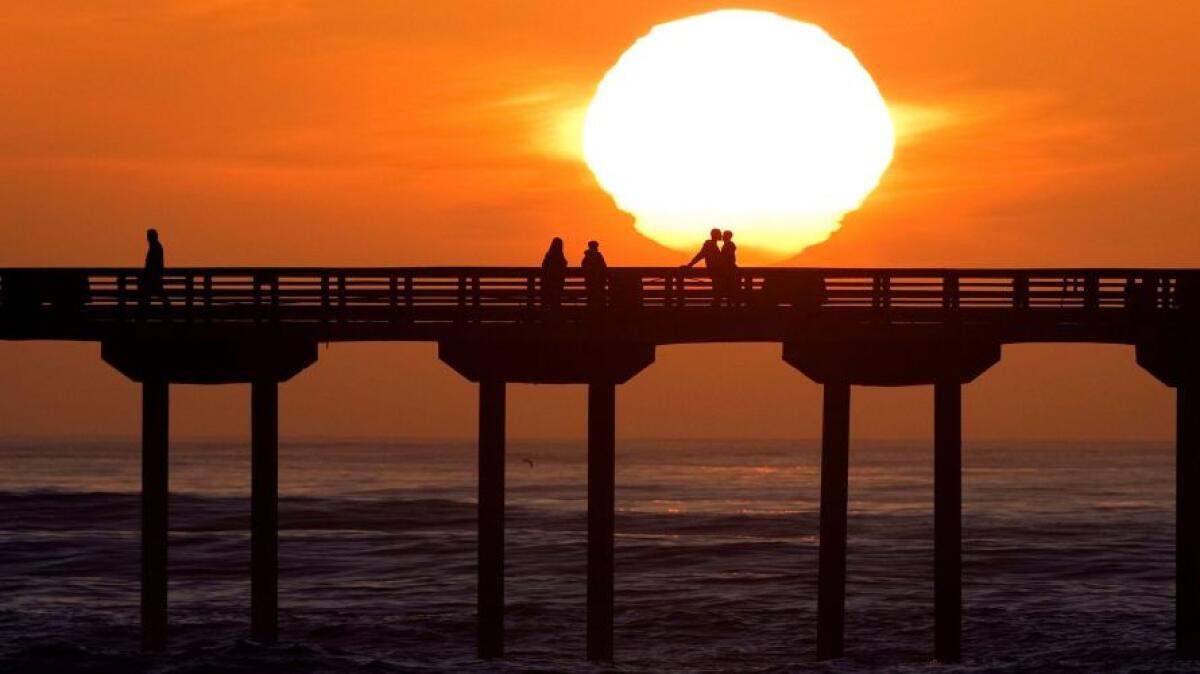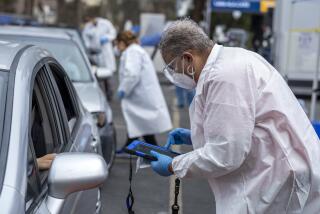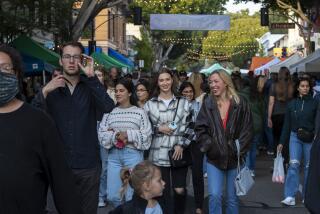Editorial: Welcome back, California! Don’t mess up this reopening like we did last time

- Share via
On Tuesday, California emerges from months of COVID-19 pandemic restrictions in a celebratory mood. There will be some lingering restrictions, such as masks required in healthcare facilities and on public transit, but in most ways it will feel like a return to normal after 15 long, terrible months.
No more waiting in line to get into a store. No more standing six feet away from everyone in public. No more sweeping mask mandates, at least for vaccinated people. After what seems like forever, bars and nightclubs can reopen without restrictions — if they haven’t gone out of business — and in-person conferences, concerts and other events can resume.
For the record:
9:25 a.m. June 15, 2021An earlier version of this editorial said sweeping mask mandates will end “at least for unvaccinated people.” It should have said “at least for vaccinated people.”
But even as the state returns to the pre-pandemic rhythms of life, let’s not forget that we have been here before — and how badly that turned out.
Last spring, Gov. Gavin Newsom began lifting pandemic restrictions on the mistaken belief that after “flattening the curve” of the first COVID-19 surge, successive waves would be manageable. Perhaps they might have been had the public fully embraced masks as an effective infection control measure and kept social distancing. Instead, many Californians went back to their usual warm weather routines of get-togethers and outings, kicking off a second wave followed by a much deadlier third wave.
California is in a much better place now and there’s reason to hope that this second reopening will not trigger a new wave of infections and a new shutdown. Not only do we have several very effective vaccines, but we also have a deeper understanding of how the coronavirus spreads easily among asymptomatic people. More than 72% of adults in California have had at least one dose, and California’s vaccination rates are among the highest in the nation. And the numbers of cases, deaths and hospitalizations reported each day are lower than they have been since the first few weeks of the pandemic. We also know a lot more about the virus and how to avoid it.
Even so, the excitement about getting back to normal (somewhat) ought to be seasoned with the humility and caution notably lacking a year ago. Though it’s appropriate for the state to lift the heavy restrictions of recent months given the circumstances, COVID-19 has not been vanquished — and may never be. Scientists suspect COVID-19 will continue to plague humanity for the foreseeable future, like influenza, though it may become less deadly in the future.
It is still, however, very dangerous for unvaccinated people. The Delta variant spreading through the U.S. at the moment is more infectious and deadlier than the dominant Alpha strain. Fully vaccinated people appear to have strong protection from this new variant, but unvaccinated and partially vaccinated people are still at risk. That means there could be very serious outbreaks in coming months in the state’s mostly rural or mountain counties and among communities of color, among whom immunizations are lower than the statewide average.
Happily, the pace of vaccinations is picking up after a lull. Say what you will about the gimmicky nature of vaccine sweepstakes and other freebies rolled out by California and other states, but they appear to be working here. The week after the Vax for the Win prizes were announced, vaccine rates increased in California. Or rather, stopped decreasing as rapidly. Since demand peaked in March, the rate of immunizations has fallen each week. Immediately before the incentive program was announced, week-over-week demand for COVID-19 shots fell by 32%. The week after the incentive program was announced, the drop was only 14% — a modest but encouraging sign.
Welcome back, California. But stay vigilant.
More to Read
A cure for the common opinion
Get thought-provoking perspectives with our weekly newsletter.
You may occasionally receive promotional content from the Los Angeles Times.










